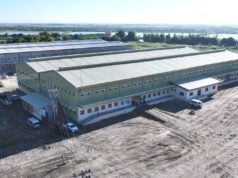“What we have caught in our antidrug campaign are small pushers,” rued Gov. Lilia G. Pineda before Ismael Fajardo Jr., PDEA Central Luzon director, and Senior Supt. Joel Consulta, Pampanga chief of police, at her office Monday.
Ay, the small pushers deprived of due process, indeed, deemed unworthy of even the least due them as humans – exterminated with extreme prejudice in patently state-inspired, if not -sanctioned, modus.
And the big-time drug dealers, always conveniently unfound in just about every raid – whether one-time-big-time or sporadic – of a shabu laboratory, factory or warehouse. TOTGA!
So, how many of these shabu production and storage facilities have been raided in Pampanga?
Within the last two years, at least five, if fading memory still serves right. Count now: three laboratories in posh villages in Angeles City, that underground shabu refinery in a piggery farm in Magalang, and that “mother-of all- shabu factories” in Arayat, shocking no less than President Duterte himself.
Oh, how can we forget that warehouse in Greenville, City of San Fernando that yielded hundreds of millions worth of meth? And that mansion that yielded shabu too, in Lakeshore, if we’re not mistaken?
So, how many drug lords have these raids yielded?
Nada. Zilch. TOTGA!
“High-value targets” may be generic in some police watchlist but not apparently those of higher- and highest-values.
On the other hand, the low-esteemed targets – the street pushers – are always found dead in some dimly-lit rural road or city nook and cranny, the cause of death listed as either nanlaban to arresting police operatives or victims of vigilante gangs; their cadavers ever cardboarded “Pusher ako, ‘wag tularan!”
With few and far between drug deaths in “legitimate encounters” rather than one-sided EJKs, Pampanga takes exception though to the extreme solution to the drug menace. Its jampacked provincial jail makes one definitive negation to extra-judicial killings, as much as an affirmation of the slow justice system in the country.
Lamented the governor: “The problem is that these suspects are all thrown at the provincial jail. They stay longer in jail because hearings are reset when witnesses or complainants among the police do not appear in court.”
In the meanwhile, the Capitol pays the cost – at P2 million monthly for just the food of some 2,300 inmates, 70 percent of whom face illegal drug cases.
And more in rehabilitative as well as livelihood programs for them and subsidies for their families.
Rightfully rues Pineda more: “The money should have been spent instead on education and health. We spend also on conferences but the illegal drug problem is not completely solved.”
With her police director Consulta asking for “the cooperation of the community to give us information about the identities of drug personalities,” the governor immediately responded with a commitment to of her office’s intelligence funds, even her personal financial resources, to help PDEA and the police intensify the local war against big time drug lords.
No more TOTGA, henceforth there can only be Gotcha! in the drug war in Pampanga. Nanay expects no less.




